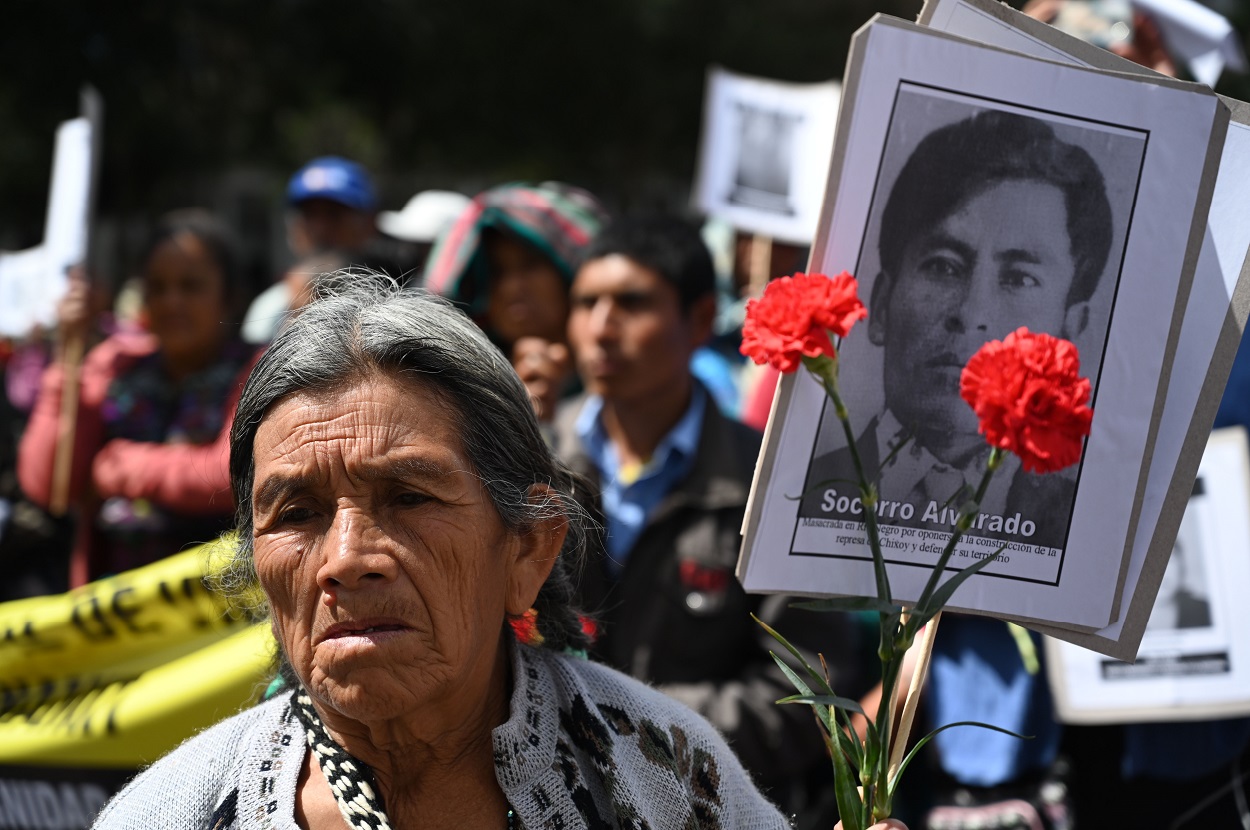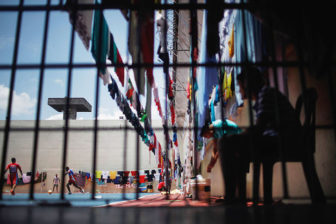Emma Theissen de Molina looked on helplessly as a military official shoved her 14-year-old son Marco Antonio into the back of a pick-up truck and sped off. The military was trying to track down her daughter, Emma Molina Theissen, a political activist who’d managed to escape after enduring nine days of imprisonment, torture, and gang rape in a secret military prison. Unable to find Emma, they kidnapped her brother instead. That was in 1981. To this day, Marco Antonio’s family does not know what happened to him.
For decades, the Molina Theissen family has been fighting to hold the Guatemalan military high command accountable for atrocities committed during the country’s brutal 36-year civil war. They and other victims’ families finally saw some symbolic measure of justice last May, when, in a landmark ruling, four senior military officials were convicted for crimes against Emma and Marco Antonio and sentenced to up to 58 years in prison.
Now, however, those officials may be getting a get-out-of-jail-free card.
A bill currently under review by Guatemala’s Congress proposes to do away with a 1996 law that prohibits amnesty for crimes such as genocide, torture and enforced disappearance. The bill is pending its final vote.
All of those convicted or awaiting trial on human rights violations would walk free within 24 hours if Congress approves the bill. Future investigations would cease.
Beyond being unjust, critics fear the bill, which requires judges to comply with the law’s mandate, would undo years of progress fighting impunity in Guatemala.
“The liberation of individuals convicted in a series of cases puts the victims, the witnesses, prosecutors and judges who achieved these convictions at grave risk,” Claudia Paz y Paz, who led an anti-impunity crusade when she was Attorney General of Guatemala, told AQ.
Reconciliation? Or Impunity?
The bill’s sponsors claim it’s an attempt to achieve reconciliation by forgiving all war crimes. To date, some 33 military officials and paramilitaries and one rebel have been convicted. More than a dozen await trial while dozens of others are under investigation.
Some of the bill’s advocates are more frank about their motivations. Estuardo Galdámez, a former military official and current legislator and presidential candidate for the ruling National Convergence Front party, claims that trials such as the Molina Theissen trial are ideologically motivated and stain the honor of the military.
“You’re ungrateful towards the Army, which defended Guatemala,” Galdámez told a fellow legislator who challenged the law’s constitutionality during a debate last week.
Victims of the conflict say the law is an attempt to legislate impunity and protect former officials responsible for some of the most appalling human rights violations committed in the hemisphere.
“It is an affront that they want to grant them amnesty after so many have sacrificed so much to see justice done,” Molina Theissen said Monday during a hearing before the Inter-American Court on Human Rights in San José, Costa Rica.
Unlikely Justice
For years after the conflict ended and peace accords were signed, few human rights cases made it to court. Democratic institutions were weak, prosecutors and judges unwilling to risk awakening the ire of the military old guard. Fear remained pervasive long after the guns went silent.
But over the past decade, Guatemala’s democratic institutions have grown stronger and more robust. With help from a UN anti-corruption body, prosecutors and judges grew emboldened to tackle the Gordian knot of post-war Guatemalan politics: impunity. Unencumbered by fear, a new generation of judges and prosecutors began investigating cases of grand corruption as well as wartime atrocities. And young people began demanding more open, democratic government, as witnessed by the massive anti-corruption protests of 2015 that ended in the arrest of the former president, retired army general Otto Pérez Molina, on corruption charges.
These changes have led to landmark rulings that have convicted those responsible for some of the war’s most heinous crimes. It was the Molina Theissen case, however, that brought down senior military officials who for decades were believed to be untouchable. A court found Benedicto Lucas García, the former Army Chief of Staff, and his chief of military intelligence, Manuel Callejas y Callejas, guilty and sentenced them to 58 years in prison.
Other senior military officials await trial for the largest case of enforced disappearance in Latin America. That case centers on exhumations at a former military base in Cobán, Alta Verapaz that lead to the discovery of 565 human remains, 145 of which have been positively identified as victims of the armed conflict. Retired army coronel Edgar Justino Ovalle, a former congressman and close advisor to President Jimmy Morales, went into hiding to avoid being arrested in relation to the case. He remains a fugitive.
A nation that has dared to dream that justice is possible is about to grant amnesty to war criminals who, let’s face it, did not only kill guerrillas in combat, as Lucas García claimed during the Molina Theissen trial. They ripped children from the arms of their mothers. They mercilessly raped women. They tortured and killed unarmed civilians on a massive scale, which the UN-sponsored truth commission found constituted “acts of genocide.”
Thousands of individuals and organizations in Guatemala reject the amnesty bill. The international community, including the U.S. Government, has also widely condemned the proposed legislation.
Still, there is a high likelihood of the bill’s passage. This would be a huge step backward for Guatemala. It would not only be a grave injustice for the victims of the conflict. It also leaves them vulnerable to reprisals. This is not a recipe for reconciliation; it is a path to disaster for Guatemala and the region.
—
Burt teaches at the Schar School of Government and Policy at George Mason University and writes about war crimes prosecutions in Guatemala for International Justice Monitor, a project of Open Society Justice Initiative.







